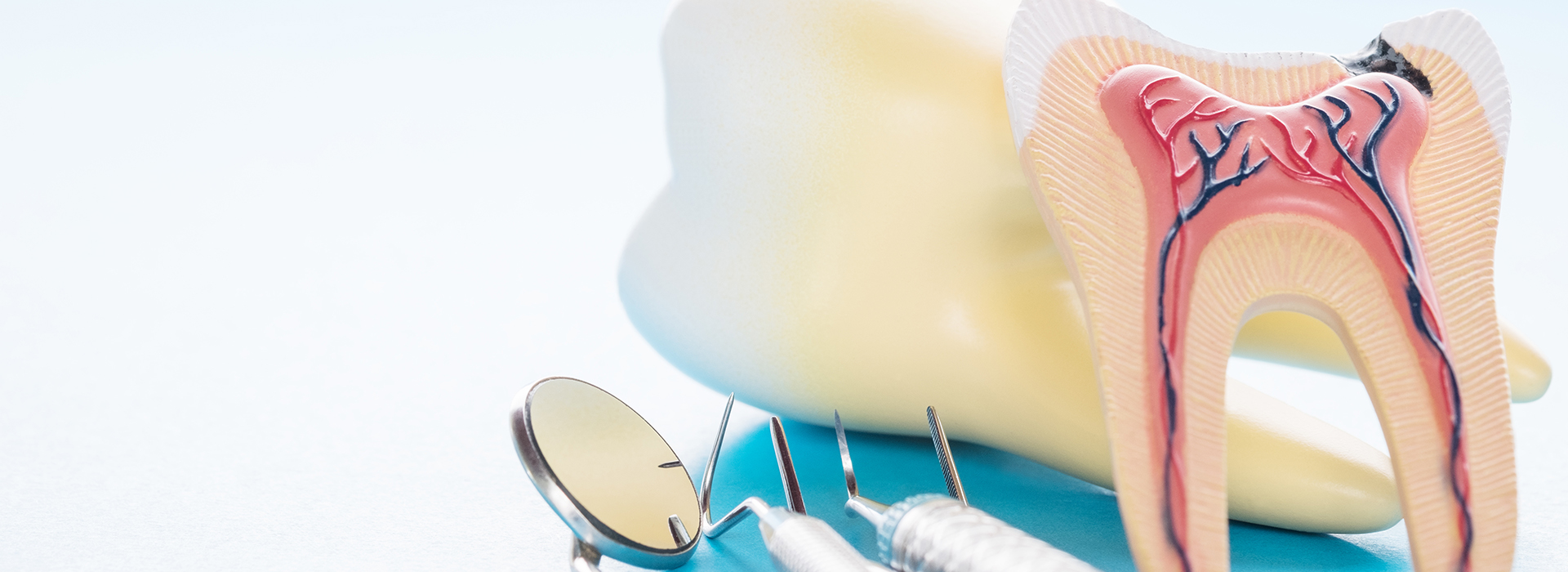
Root canal treatment is a procedure that relieves pain that is caused from a decayed tooth that is abscessed. In most circumstances, individuals will need a root canal to diminish infection in the tooth roots and decrease inflammation of the gums. When a root canal is performed, a dental professional will remove the inflamed pulp inside a tooth, clean the infected area, shape the root canal, and fill the area with sealant.
Innovative developments in the dental industry have helped the procedure become less painful and typically doesn’t require more than two trips to an endodontist or dentist.
A root canal takes place over four steps and typically takes two office visits. An individual will be given local anesthesia to numb the treated area. When the tooth roots and gums are numb, a dental dam will be placed on the treated tooth, so that it will stay clean and protected during the root canal.
A dental professional will use tools, which may include a tiny drill, that will make a hole on the top of the tooth to access the infected area. Next, the dental professional will remove the damaged and diseased pulp and will file the shape of the inside of the tooth. In addition, a dental professional may also wash away any pulp that remains inside the tooth. Patients may also be treated with an antimicrobial solution to ensure the area is cleared from infection.
After the area has been cleaned and dried, it will be filled with a sealant that is a rubber-like substance known as gutta percha, but there are other materials that can be used for temporary fillings. The filling acts as a temporary sealant until the permanent crown is ready. It usually takes about two weeks before the permanent crown is placed on the tooth. If an excessive amount of an individual’s natural tooth was removed or decayed, a dental professional administer a post to support the crown.
It is vital to take proper care of your gums and teeth after the root canal procedure. We may recommended an additional office visit for an X-ray to ensure all of the infection is gone.
We welcome you to contact our office today to find out more about root canal treatment.
